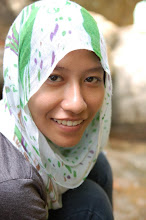In our world, have many religion. I'm is Malaysian and muslim. I'm live at Malaysia. Malaysia is a multiconfessional society, with slightly more than half of its people being Muslims. The internal conflicts the nation has faced have generally been precipitated by ethnicity rather than religion. The country is officially a Muslim state, and the Government actively promotes the spread of Islam in the country and its friendship with other Muslim countries. Nevertheless, other religions are tolerated and the individual's right to the freedom of worship is listed in the country's constitution. The government also gives grants to religious bodies of other religions for building projects and other programs. Islam is the official religion of Malaysia, and the Government actively promotes the spread of Islam in the country and its friendship with other Muslim countries. The Census in 2000 show approximately 60.4 percent of the total population are Muslims in Malaysia. There are also substantial numbers of Indian Muslims and a few numbers of ethnic Chinese converts. As required by Malaysian law and defined in the Constitution of Malaysia, a Malay would surrender his ethnic status if he were not Muslim. However the reverse is not legally true one does not legally become a Bumiputra by converting to Islam. Islam is central to and dominant in Malay culture. A significant number of words in the Malay vocabulary can trace their origins to Arabic which is the chosen language of Islam. This is, however, not exclusive and words from other cultures such as Portuguese, Chinese, Dutch, Sanskrit, Tamil, English, and French can also be found in the Malay language. Islam is so ingrained in Malay life that Islamic rituals are practiced as Malay culture. Muslim and Malays are interchangeable in many daily contexts.Hari Raya Aidilfitri is an important festival celebrated by Malaysian Muslims. Muslim women generally wear the tudung (hijab or headscarf) over their heads. However, Malay women not wearing any headgear are not reprimanded or penalised. Prominent Malaysian female examples are Datuk Seri Rafidah Aziz, International Trade and Industry Minister and Tun Dr Siti Hasmah Mohd Ali, wife of former Malaysian Prime Minister Tun Dr Mahathir bin Mohammad. However, with the influx of Arabic travellers, foreign Muslim women (Arabs) wearing hijab that leave only their eyes exposed are often spotted in public, not the least at the shopping malls. At certain Malaysian institutions such as the International Islamic University, wearing of the tudung is mandatory for Muslim student but for non-Muslim just wear one piece of cloth over the back of the head. The tudung, or the hijab, is a symbol of a Muslim woman. Nine of Malaysian states namely Kelantan, Terengganu, Pahang, Kedah, Perak, Perlis, Selangor, Johor and Negeri Sembilan most of them styled as Sultans. These Malay rulers still maintain authority over religious affairs in states. The states of Penang, Malacca, Sarawak and Sabah do not have any sultan, but the king (Yang di-Pertuan Agong) plays the role of head of Islam in each of those states as well as in each of the Federal Territories of Kuala Lumpur, Labuan and Putrajaya. Originally, the draft Constitution of Malaysia did not specify any official religion for the state. This move was supported by the rulers of the nine Malay states, who felt that it was sufficient that Islam was the official religion of their individual states and their country.As the religion embraced by the most populous ethnic class of Malaysia, Islam plays an important part in Malaysian politics. Islam is seen by the Malay as a subject which can not be challenged conventionally or constitutionally. So, as a Muslims, we must hold fast to our own religion and believe in our religion. We also must avoid being influenced by things that are not good and what is forbidden in Islam.
LAMA BETUL AKU TAK MENAIP.... TAPI AKU RASA AKU...
-
Assalamualaikum.... semua... lama betul aku tak menaip cerita-cerita
menarik tentang diri aku di blog ni. Terima kasih saiful a.k.a phyzxxx nama
ala ala ...
9 years ago
















0 comments:
Post a Comment